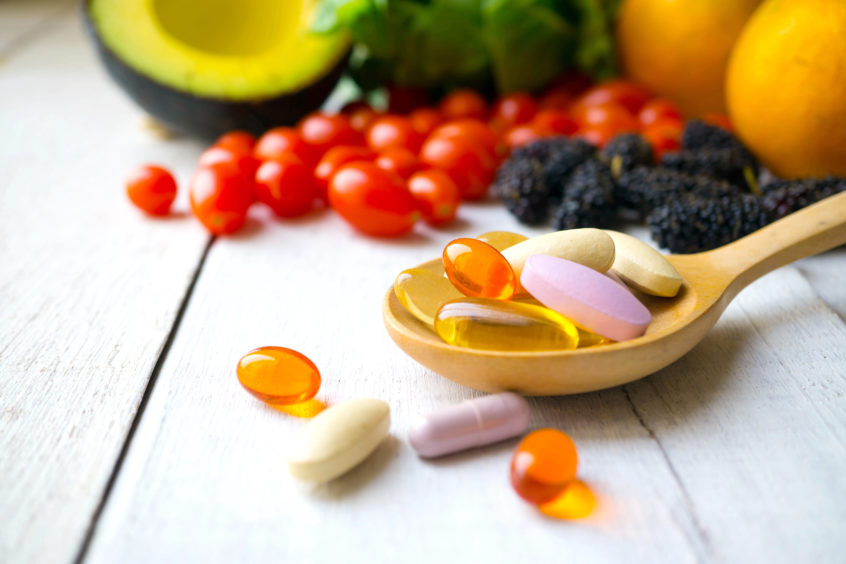Bread Is Often Fortified With Vitamin D
Scientist leading group calling for greater emphasis on vitamin D supplementation in the UK, believes fortifying foods could provide significant health benefits.
More than half of Scotland's population (54%) do not have sufficient vitamin D levels by the end of winter. And while this has long been a health concern, an international group of scientists and medics say it's one that now needs to be urgently addressed amid the ongoing coronavirus pandemic.
Some have called for basic foods such as milk and bread to be fortified, with former UK government minister, David Davis, also championing this move.
In an article on the Conservative Home website he wrote: "Vitamin D is readily available and – at a penny per pill – it is incredibly cheap. Providing supplements to those at risk due to pre-existing conductions, such as diabetes, would cost £45 million: to these, plus to every ethnic minority citizen, about £200 million.
"For a little more, we could do what the Nordic countries do, and fortify some basic foods with vitamin D. And for tiny amounts of money, we could repeat the Spanish experiment in every British hospital, elevating vitamin D levels in Covid-19 patients on arrival, cutting down the demand for ICU treatments."
The Spanish experiment he referred to was a randomised control trial carried out at the Reina Sofia University Hospital involving 76 Covid-19 patients, 50 of whom were given vitamin D. Half of those not given the vitamin ended up in intensive care, compared with only one patient who received the supplement.
The Scottish Government has updated its advice on vitamin D suggesting that, since it is difficult to source enough purely through diet, everyone should should consider taking a daily supplement.
They also added to their advice by specifically suggesting people from minority ethnic groups, a sector of the population that has been particularly hard hit by the virus and who need more sun exposure to maintain sufficient vitamin D levels, take a supplement of 10 micrograms each day.
Vitamin D supplement advice during the #coronavirus pandemic.
In Scotland it is important that people maintain sufficient levels of vitamin D. ☀️#VitaminD has a number of important functions and is needed to support bone and muscle health.💪
Find out more⬇️ https://t.co/zQoesOPLj2
— Scot Gov Health (@scotgovhealth) July 31, 2020
Sunlight is our primary source of vitamin D. Without supplementation, in autumn and winter months we rely on food sources – which is often not enough to meet our bodies' needs.
Multiple studies have shown that vitamin D deficiency could put Covid-19 patients at higher risk of developing complications.
Anglia Ruskin University in Cambridge reported that European countries where the public have lower vitamin D levels had significantly higher death rates, including Britain. Surrey and Southampton Universities also reported data showing ethnic minorities and those who are obese may be at greater risk from coronavirus due to deficiency.
Dr Gareth Davies is a medical physics researcher and tech entrepreneur who has devoted the last eight months to analysing data relating to the coronavirus. From studying international statistics he saw a clear correlation between vitamin D deficiency and increased susceptibility to the virus.
Along with a group of other scientists and medics he is urging the public to supplement with vitamin D and believes food fortification could also play an important role, as it may have done in Finland where Covid-19 mortality rates are lower than in much of western Europe.
The group advocates supplementing at a higher level of vitamin D than is currently recommended by UK health officials – at 4,000 IU/day (100mcg). Excessive levels of vitamin D could be harmful, with the NHS website advising not to exceed more than 4,000 IU (100 micrograms) a day.
Dr Davies said: "There's no downside in people getting their vitamin D levels up to a healthy serum level, but the problem is the serum levels that define deficiency are from rickets (a skeletal disorder caused by lack of vitamin D) which is 20th century science, not 21st century.
"You look at Finland the only country in the west to run a successful food fortification programme – and that's partly where this idea has come from. They did it because they're so far north and had terrible influenza outbreaks. They've managed to pretty much wipe out deficiency – so that's defined as rickets level – but for Covid we're trying to get people to understand it's not about deficiency it's about insufficiency."
In Finland to date there have been 358 deaths attributed to coronavirus.
Dr Davies added: "If you think about the size of Finland, the fact they've only had 1100/1150-odd cases hospitalised that's a tiny number. There are stats showing their influenza patterns and you see the number of influenza cases going down in 2010 when they doubled the amount [of vitamin D fortification]."
Health officials in Scotland and in England are reviewing the potential vitamin D in the fight against the virus to see whether it should be routinely prescribed to those in hospital and in high-risk groups.
For now, the Scottish Government advice states: "In Scotland, we only get enough of the right kind of sunlight for our bodies to make vitamin D between April and September, mostly between 11am and 3pm. From October to March, we need to rely on dietary sources of vitamin D. Since vitamin D is found only in a small number of foods, it might be difficult to get enough from foods that naturally contain vitamin D and/or fortified foods alone.
"Good food sources are oily fish and eggs. Other food sources include fortified foods such as breakfast cereals and spreads.
"Everyone (including children) should consider taking a daily supplement containing 10 micrograms of vitamin D, particularly during the winter months (October to March). It is specifically recommended that groups at higher risk of vitamin D deficiency take a daily supplement all year round."

Dietitian Dr Carrie Ruxton believes that, particularly for those in higher-risk groups, supplements are a must. She said: "The Government advice has always been to consider a supplement from autumn to spring but people aren't doing it. People in care homes should be given routine vitamin D supplements and that isn't happening. People should be saying to their grandparents to take vitamin D – and this [pandemic] has raised awareness like never before."
What do we know about the benefits of vitamin D?
Your body needs vitamin D to absorb calcium which is vital for bone health.
Deficiency of vitamin D has also been linked to a range of serious illnesses including some cancers, heart disease and depression. There has also been research, some of which is referenced in this article, suggesting deficiency could lead to poorer outcomes for coronavirus patients. Multiple trials are under way to try to establish whether vitamin D supplementation improves the chances and speed of recovery.
There is a school of thought that vitamin D has anti-inflammatory properties and could help regulate the body's immune response to viruses, but studies are ongoing and although calls are mounting for more to be done to combat deficiencies in the UK and elsewhere, evidence from trials around the world is still being gathered and reviewed by health officials.
What are the best sources of vitamin D?

Our main sources of vitamin D are sunlight, food and supplementation – but our less-than-predictable weather in the UK can make it hard to achieve adequate levels of sun exposure at the best of times.
There are limited foods from which we can source the vitamin, making it hard to achieve the minimum daily UK recommended amount of vitamin D. There are, however, some foods which naturally contain vitamin D such as oily fish including salmon, sardines, trout, herring and kippers.
It's also found in egg yolk, cow's milk, and fortified foods including cereals, spreads and yoghurts.
Feeling flat? Why nutritional deficiencies could be behind some of our common ailments
Bread Is Often Fortified With Vitamin D
Source: https://www.thecourier.co.uk/fp/lifestyle/food-drink/1291402/should-vitamin-d-be-added-to-bread-and-milk/

Tidak ada komentar: